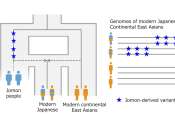Researchers propose a strategy to stratify risk of progression from mild cognitive impairment to Alzheimer's
The projected cost of caring for millions of individuals who have Alzheimer's disease (AD) worldwide will exceed a $1 trillion in a few years. In addition to the enormous health burden, patients and their caregivers experience ...
Aug 4, 2023
0
55









